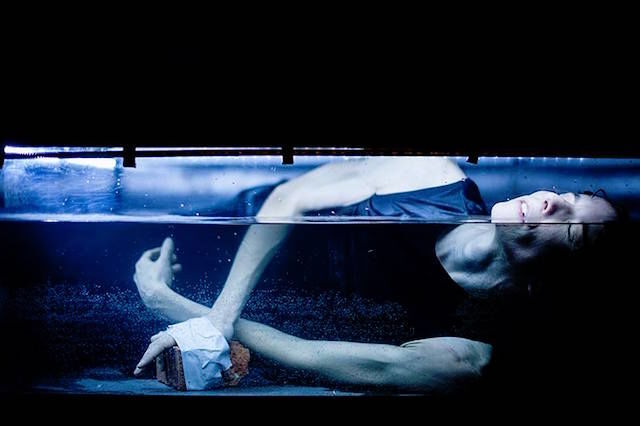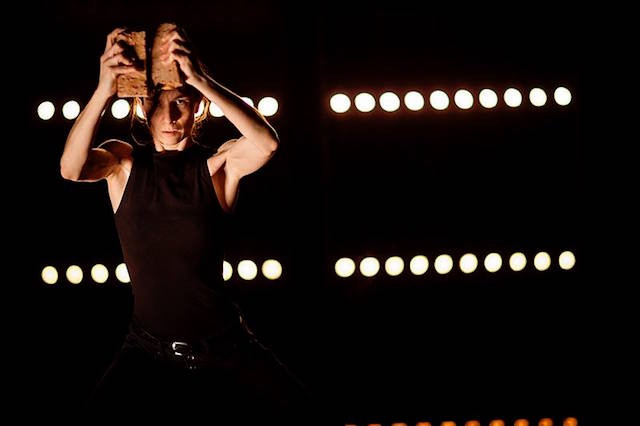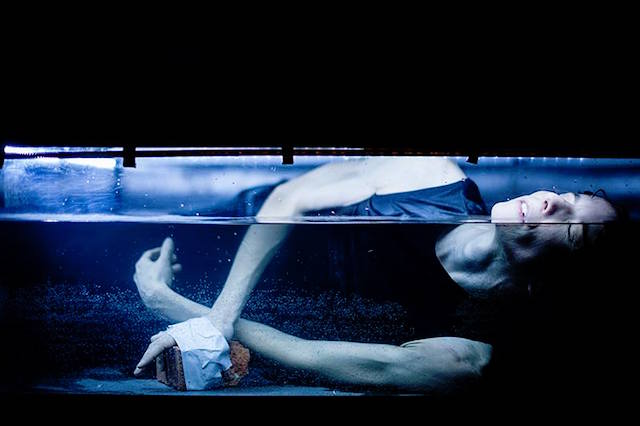
Cécile Da Costa: „It is important for the spectator to be active and to find a space for its own story or imagination"
 We caught performer and dancer Cécile Da Costa just before the premiere of her solo performances The Narrator, directed by Peter Boháč (Spitfire Company) and opening 29th and 30th March 2016 in Palác Akropolis. She shared with us some thoughts about her new project and her current state of mind.
We caught performer and dancer Cécile Da Costa just before the premiere of her solo performances The Narrator, directed by Peter Boháč (Spitfire Company) and opening 29th and 30th March 2016 in Palác Akropolis. She shared with us some thoughts about her new project and her current state of mind.How much of your real self do you put into this performance? Is it difficult to reveal some personal things about you? Where is the boundary of what you share with the audience and what you keep inside?
While performing I try to be nothing else but me, as close as possible to my emotions and feelings in the moment, in the action. The story I am telling is connected with intimate and difficult situations of my life but it is rather said as a reflection, mirroring others stories from others women. I am trying to make a bridge between what is personal and what is universal.
We (musicians, director and me) use songs and sounds, body, music and scenography as many voices to tell the story such a way that the audience should come close to listen. I believe that a good storyteller always keeps a part of secret, a part of silence.
Sometimes I say the story, sometimes I suggest it and sometimes I am silent. It is important for the spectator to be active and to find a space for its own story/imagination. So the boundary of what I share and what I keep is related to the space I give to myself and the space I give to the audience.
I can share with the audience what I can myself understand. I am not using the stage for psychotherapy although it works also like this. So how does the work on this performance influence your daily life and also your psychological and emotional side?
It works like a cleaning process. It also reveals how much I am attached to some memories and to the emotions that are connected to them. Letting them go is not always easy. But then I look in the mirror (as in the performance) and I can say: so, that is me. Why or when did you decide to open up and tell your story? Was the book "The Patience Stone" the main impulse?
 At first I wanted to create a solo, not especially to speak about me but because I imagined it as a challenge. How would it be to work alone and to be alone on the stage?
At first I wanted to create a solo, not especially to speak about me but because I imagined it as a challenge. How would it be to work alone and to be alone on the stage?Then I read the book and that was the impulse that kicked me and pushed me to speak about it with Petr Boháč. You cooperate with two live musicians onstage – how important are they for your performance and how do they influence it?
The musicians are strong partners. They are supporting the strength and meaning of the story and supporting me when I feel I can’t anymore. In this performance the music goes with me and not against me. The piece surely puts great emotional and physical load on your body and voice. How do you keep fit? How do you relax?
The piece puts emotional and physical load on me but it is the same with other performances. The more I give into it the more it gives back. The more I am able to open and share with the audience, the more they give back.
For now, because it is a new-born performance it is difficult for me to relax into it. But Petr keeps on repeating to me to breath and to use my voice to avoid tensions which are not necessary. But I have to say that just before the premiere I am not relaxed at all.




Josef Bartos
Thank you for your thoughts. One got stuck in my mind – that passion makes us different from AI. Just yesterday I read…I am a dance critic. I am a member of an endangered species